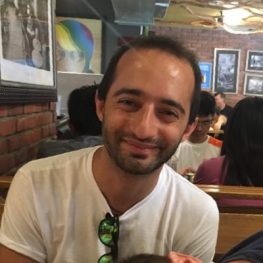Start
19 November 2019 - 12 h 30 min
End
19 November 2019 - 14 h 00 min
Address
30 Avenue Antoine Depage - 1050 Brussels (Room DC8.322 - 8th floor, Building D, Campus Solbosch of the Faculty of Psychology and Educational Sciences - Université Libre de Bruxelles) View mapCategories
Departement SeminarMuslim AND feminist? Can Muslim-feminist identity integration help to tackle the disadvantages in Muslim women’s lives?
Yasin Koc (Department of Social Psychology, University of Groningen, Netherlands)
Abstract: Today an increasing number of Muslim women identify themselves as both Muslim and feminist at the same time; however, these identities are often perceived incompatible by some Muslim and feminist groups. Muslim feminist women might hence experience conflict endorsing these social identities. Accordingly, we were interested in examining the factors that might reduce this conflict and predict integration of Muslim and feminist identities among Muslim women. For this, we adapted the bicultural identity integration framework and examined the factors that predict this integration among Muslim women in Turkey. Across two studies using correlational and experimental designs (N = 600), we found that religiosity was not significantly related to Muslim-feminist identity integration, whereas positive attitude towards feminism and higher familiarity with other Muslim feminist women predicted higher identity integration. Moreover, we found that presenting feminism using Islamic references increased Muslim-feminist identity integration, but this was true only for those who had low familiarity with other Muslim feminists. This shows the importance of visibility of feminist Muslim women to inspire other women. More importantly, Muslim-feminist identity integration predicted higher collective action intentions across both studies showing the importance of mobilizing effect of this dual identity. Overall, these findings provide novel theoretical advancements in identity integration and social change, and useful insights for NGOs trying to mobilize Muslim women to improve their disadvantage status. Our further investigations include whether Muslim-feminist identity integration can help increase positive/accurate representation of Muslim women in public life and tackle the prevalent disadvantages.


